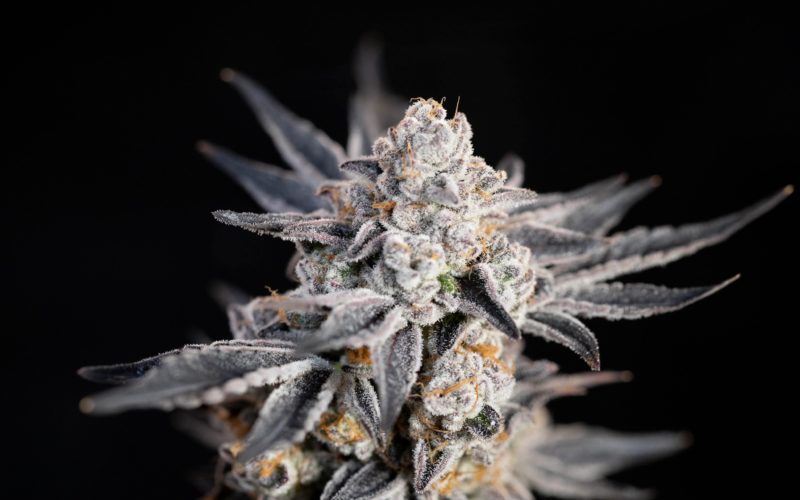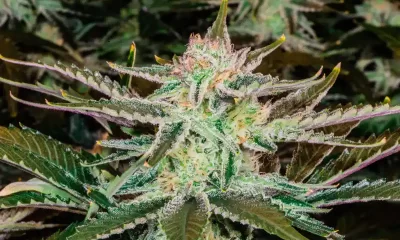Cultivation
Missouri Medical Cannabis Licenses Suspended Over ‘Irregularities’

Four medical cannabis production licenses were suspended on Thursday over alleged improprieties at the facilities in Missouri.
Regulators in Missouri have suspended four medical weed licenses and ordered products to be destroyed over alleged irregularities at the cannabis operators. The suspensions, which were revealed by the St. Louis Post-Dispatch on Thursday, are part of a compromise agreement that marks the end of a dispute between the licensees and state regulators over reported violations at the facilities.
The agreement reached between the director of Missouri’s medical cannabis program and the four businesses directs the licensees to transfer operational management of the facilities to a third-party management firm by June 30. The current licensees will then have until November 30 to find a buyer and exit Missouri’s regulated medical weed industry.
“The primary owners of these licenses will not be eligible to own licenses in the future,” said Lisa Cox, spokeswoman for the Missouri Department of Health and Senior Services.
Cox added that the agreement “resolves the investigation” into the licensees’ operations.
The agreement also calls for the destruction of some cannabis products now held by the facilities or that have been transferred to other licensees. Some medical pot products, however, will be processed into compliant merchandise under the terms of the agreement.
“The Department’s approval of the change of ownership or transfer of the licenses is contingent upon Licensees divesting themselves of all product currently in their possession,” the agreement reads.
The medical cannabis operators that agreed to the compromise include Archimedes Medical Holdings, a company that has used the brand name Solhaus and holds two cultivation licenses. Another cultivator, FUJM, and Holistic Health, a medical marijuana products manufacturer, are also included in the agreement. All four licenses were issued for operations in Perryville, Missouri.
Suspensions Ordered Over Alleged Violations
The order to cease operations at one of the medical weed companies lists details of the reported irregularities, including a claim that “the licensee has left medical marijuana product unattended, unsecured, and in unsanitary conditions.”
“Licensees disagree with the Department’s position,” the agreement said, according to a copy provided to the St. Louis Post-Dispatch by the Department of Health and Senior Services.
The settlement between regulators and the facility was reached to “resolve the Department’s allegations” and notes that the agreement “shall not be construed as an admission of liability or wrongdoing by any Party.”
The suspension order for two of the cultivation operations includes allegations that the facilities’ “employees are using and applying pesticides without proper training or proper Personal Protective Equipment.”
The four licensees will also be required to transfer the operations to a new owner by November 30. According to the agreement, “Licensees shall submit change of ownership or transfer of license change requests to the Department” for the four suspended licenses.
“If Licensees fail to submit a timely change request, … that license will be deemed to have been surrendered to the Department, effective December 1, 2022,” the agreement continues.
In April, a medical weed company based in Kansas City filed suit against Archimedes, claiming state regulators had determined that the cultivator had trafficked cannabis into Missouri from out of state and that $1.7 million worth of inventory had been frozen. However, orders to suspend operations issued by the state last year do not include references to any such violations.
Tanner Rolfes, attorney for the licensees, wrote in an email that “Archimedes, along with individuals harmed by false accusations, will continue to seek legal action against any and all unscrupulous entities or individuals that opportunistically made and pursued false and defamatory claims.”
“My clients are pleased with the settlement agreement and looking forward to the future,” Rolfes added. “Most importantly, the settlement confirms that Archimedes et al, as well as any affiliated entities or individuals, were not involved in any unlawful conduct.”
Source: https://hightimes.com/news/missouri-medical-cannabis-licenses-suspended-over-irregularities/
Business
New Mexico cannabis operator fined, loses license for alleged BioTrack fraud

New Mexico regulators fined a cannabis operator nearly $300,000 and revoked its license after the company allegedly created fake reports in the state’s traceability software.
The New Mexico Cannabis Control Division (CCD) accused marijuana manufacturer and retailer Golden Roots of 11 violations, according to Albuquerque Business First.
Golden Roots operates the The Cannabis Revolution Dispensary.
The majority of the violations are related to the Albuquerque company’s improper use of BioTrack, which has been New Mexico’s track-and-trace vendor since 2015.
The CCD alleges Golden Roots reported marijuana production only two months after it had received its vertically integrated license, according to Albuquerque Business First.
Because cannabis takes longer than two months to be cultivated, the CCD was suspicious of the report.
After inspecting the company’s premises, the CCD alleged Golden Roots reported cultivation, transportation and sales in BioTrack but wasn’t able to provide officers who inspected the site evidence that the operator was cultivating cannabis.
In April, the CCD revoked Golden Roots’ license and issued a $10,000 fine, according to the news outlet.
The company requested a hearing, which the regulator scheduled for Sept. 1.
At the hearing, the CCD testified that the company’s dried-cannabis weights in BioTrack were suspicious because they didn’t seem to accurately reflect how much weight marijuana loses as it dries.
Company employees also poorly accounted for why they were making adjustments in the system of up to 24 pounds of cannabis, making comments such as “bad” or “mistake” in the software, Albuquerque Business First reported.
Golden Roots was fined $298,972.05 – the amount regulators allege the company made selling products that weren’t properly accounted for in BioTrack.
The CCD has been cracking down on cannabis operators accused of selling products procured from out-of-state or not grown legally:
- Regulators alleged in August that Albuquerque dispensary Sawmill Sweet Leaf sold out-of-state products and didn’t have a license for extraction.
- Paradise Exotics Distro lost its license in July after regulators alleged the company sold products made in California.
Golden Roots was the first alleged rulebreaker in New Mexico to be asked to pay a large fine.
Source: https://mjbizdaily.com/new-mexico-cannabis-operator-fined-loses-license-for-alleged-biotrack-fraud/
Business
Marijuana companies suing US attorney general in federal prohibition challenge

Four marijuana companies, including a multistate operator, have filed a lawsuit against U.S. Attorney General Merrick Garland in which they allege the federal MJ prohibition under the Controlled Substances Act is no longer constitutional.
According to the complaint, filed Thursday in U.S. District Court in Massachusetts, retailer Canna Provisions, Treevit delivery service CEO Gyasi Sellers, cultivator Wiseacre Farm and MSO Verano Holdings Corp. are all harmed by “the federal government’s unconstitutional ban on cultivating, manufacturing, distributing, or possessing intrastate marijuana.”
Verano is headquartered in Chicago but has operations in Massachusetts; the other three operators are based in Massachusetts.
The lawsuit seeks a ruling that the “Controlled Substances Act is unconstitutional as applied to the intrastate cultivation, manufacture, possession, and distribution of marijuana pursuant to state law.”
The companies want the case to go before the U.S. Supreme Court.
They hired prominent law firm Boies Schiller Flexner to represent them.
The New York-based firm’s principal is David Boies, whose former clients include Microsoft, former presidential candidate Al Gore and Elizabeth Holmes’ disgraced startup Theranos.
Similar challenges to the federal Controlled Substances Act (CSA) have failed.
One such challenge led to a landmark Supreme Court decision in 2005.
In Gonzalez vs. Raich, the highest court in the United States ruled in a 6-3 decision that the commerce clause of the U.S. Constitution gave Congress the power to outlaw marijuana federally, even though state laws allow the cultivation and sale of cannabis.
In the 18 years since that ruling, 23 states and the District of Columbia have legalized adult-use marijuana and the federal government has allowed a multibillion-dollar cannabis industry to thrive.
Since both Congress and the U.S. Department of Justice, currently headed by Garland, have declined to intervene in state-licensed marijuana markets, the key facts that led to the Supreme Court’s 2005 ruling “no longer apply,” Boies said in a statement Thursday.
“The Supreme Court has since made clear that the federal government lacks the authority to regulate purely intrastate commerce,” Boies said.
“Moreover, the facts on which those precedents are based are no longer true.”
Verano President Darren Weiss said in a statement the company is “prepared to bring this case all the way to the Supreme Court in order to align federal law with how Congress has acted for years.”
While the Biden administration’s push to reschedule marijuana would help solve marijuana operators’ federal tax woes, neither rescheduling nor modest Congressional reforms such as the SAFER Banking Act “solve the fundamental issue,” Weiss added.
“The application of the CSA to lawful state-run cannabis business is an unconstitutional overreach on state sovereignty that has led to decades of harm, failed businesses, lost jobs, and unsafe working conditions.”
Business
Alabama to make another attempt Dec. 1 to award medical cannabis licenses

Alabama regulators are targeting Dec. 1 to award the first batch of medical cannabis business licenses after the agency’s first two attempts were scrapped because of scoring errors and litigation.
The first licenses will be awarded to individual cultivators, delivery providers, processors, dispensaries and state testing labs, according to the Alabama Medical Cannabis Commission (AMCC).
Then, on Dec. 12, the AMCC will award licenses for vertically integrated operations, a designation set primarily for multistate operators.
Licenses are expected to be handed out 28 days after they have been awarded, so MMJ production could begin in early January, according to the Alabama Daily News.
That means MMJ products could be available for patients around early March, an AMCC spokesperson told the media outlet.
Regulators initially awarded 21 business licenses in June, only to void them after applicants alleged inconsistencies with how the applications were scored.
Then, in August, the state awarded 24 different licenses – 19 went to June recipients – only to reverse themselves again and scratch those licenses after spurned applicants filed lawsuits.
A state judge dismissed a lawsuit filed by Chicago-based MSO Verano Holdings Corp., but another lawsuit is pending.
Source: https://mjbizdaily.com/alabama-plans-to-award-medical-cannabis-licenses-dec-1/
-

 Business2 years ago
Business2 years agoPot Odor Does Not Justify Probable Cause for Vehicle Searches, Minnesota Court Affirms
-

 Business2 years ago
Business2 years agoNew Mexico cannabis operator fined, loses license for alleged BioTrack fraud
-

 Business2 years ago
Business2 years agoAlabama to make another attempt Dec. 1 to award medical cannabis licenses
-

 Business2 years ago
Business2 years agoWashington State Pays Out $9.4 Million in Refunds Relating to Drug Convictions
-

 Business2 years ago
Business2 years agoMarijuana companies suing US attorney general in federal prohibition challenge
-

 Business2 years ago
Business2 years agoLegal Marijuana Handed A Nothing Burger From NY State
-

 Business2 years ago
Business2 years agoCan Cannabis Help Seasonal Depression
-

 Blogs2 years ago
Blogs2 years agoCannabis Art Is Flourishing On Etsy













